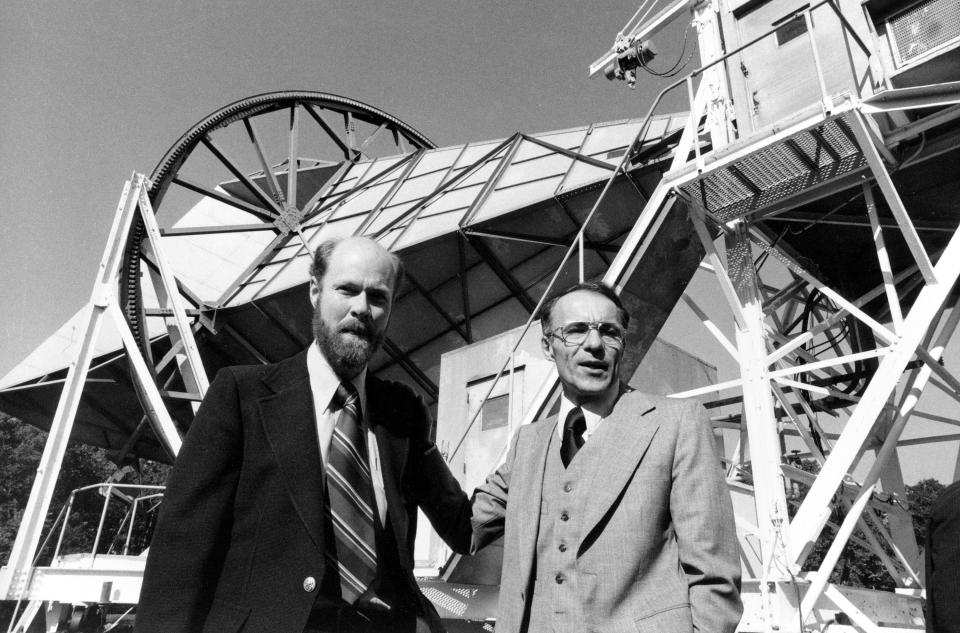NJ Nobel Prize winner for work at Holmdel Bell Labs dies at 90. What a life he had.
Arno A. Penzias, who worked at the Holmdel Bell Laboratories and shared the 1978 Nobel Prize in physics for his work there, died this week at the age of 90.
Long before his greatest work, decades before he moved to Highland Park, New Jersey, his family fled Nazi-occupied Germany. Penzias, at age 6, and his younger brother left his parents in 1939 through the Kindertransport rescue effort, in which trains took thousands of Jewish children to live with British families.

He talked about it in his Nobel Prize biography: "In the late spring of 1939, shortly after my sixth birthday, my parents put their two boys on a train for England; we each had a suitcase with our initials painted on it, as well as a bag of candy. They told me to be sure and take care of my younger brother. I remember telling him, 'jetzt sind wir allein' ('Now we are alone') as the train pulled out."
They eventually reunited with their parents and awaited passage to America, where they believed they would be safe.
They arrived in New York in 1940 and settled there. It was always assumed the boys would go to college, Penzias wrote. He studied physics at the City College of New York, joined the Army Signal Corps then earned his masters and doctorate at Columbia University.
Horn Antenna: What will happen to the big-bang theory's Horn Antenna? Holmdel residents pitch ideas
"In 1961, with my PhD thesis complete, I went in search of a temporary job at Bell Laboratories, Holmdel, New Jersey. Their unique facilities made it an ideal place to finish the observations I had begun during my thesis work. 'Why not take a permanent job? You can always quit,' was the advice of Rudi Kompfner, then director of the Radio Research Laboratory. I took his advice, and remained a Bell Labs employee for the next 37 years," Penzias wrote.
It was there that Penzias began his work with Bell Laboratories colleague and astronomer Robert W. Wilson. Their discoveries supported what is now the current theory of the origin and development of the universe: the Big Bang theory. For this, they received half of the Nobel Prize; the other half was awarded to a Soviet physicist for unrelated work.
In 1992, Dr. Penzias arranged for the donation of the Holmdel Horn’s receiver and calibration equipment to the Deutsches Museum in Munich, where it is part of a permanent exhibition, according to the New York Times.
“It was very important to my father to remind them what they lost,” his daughter, Rabbi L. Shifra Weiss-Penzias, said, according to the Times. “He wanted his work to be a living reminder of the refugees who left and the people who died.”
He eventually moved to California to work there. He died in San Francisco on Jan. 22 from complications of Alzheimer's disease.
This article originally appeared on Asbury Park Press: Arno Penzias, Nobel Prize winner, dies at 90

